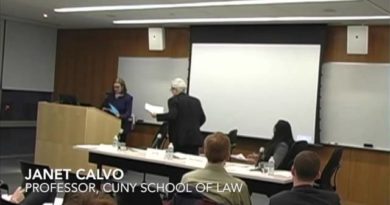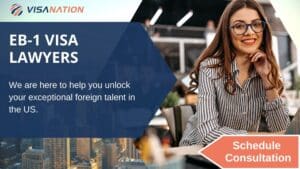USCIS Uses Updates of Policy Guidance in Lieu of Advertising
USCIS has just announced two “clarifications” of the rules for foreign students, both aimed at easing the transition from nonimmigrant to immigrant status.
One of the two policy guidance updates applies to both F-1 (academic) and to M-1 (vocational) international students; the other only to F-1s.
Maybe I am being a little cynical, but the proclamation of the “clarifications” struck me, former advertising agency employee that I am, as something that the government does instead of taking out paid ads saying in big, bold type: “Hey, International Student, Here’s a Good Way to Get Your Green Card!”
My colleague, Elizabeth Jacobs, an ex-USCIS lawyer, has told me that there is nothing new in these “updates”; they simply deal with existing policies and practices. I agree with her.
But if you are a government agency and cannot (for good reason) buy advertising to push foreign students into green card status, you can use press releases and “policy guidance updates” to get the same message across. And this is what we have here, and in many other similar releases.
The USCIS announcement deals with two different subject matter areas, the first is:
For example, the guidance clarifies that F and M students must have a foreign residence that they do not intend to abandon, but that such students may be the beneficiary of a permanent labor certification application or immigrant visa petition and may still be able to demonstrate their intention to depart after a temporary period of stay.
In other words, while foreign students must be able to claim an intent to leave the country to retain their visa status, they also have the opportunity to say that they would like to stay here and seek green card status. In short, they can have it both ways. This is a long-standing USCIS policy, and the updated “policy guidance” simply confirms it.
The second subject matter area does not relate to foreign students at all; it deals with foreign graduates of U.S. colleges and universities (i.e., no longer students) who are seeking subsidized U.S. jobs through the so-called Optional Practical Training program while still on their student visas.
These jobs are open for one to three years to these alumni, one year for all, and two more years for those who hold U.S. degrees in the STEM fields of science, technology, engineering, and math. These subsidies are only open to aliens, Americans need not apply.
The subsidy, which was not mentioned in the policy guidance notice, is in the form of a tax break for the OPT employers: they save about 9.5 percent of wages by not having to pay the payroll taxes that come with virtually all other employees in the U.S. economy. They do not have to pay into the Social Security, Medicare, and Federal Unemployment Trust Funds. You might say that these employers are paid by the government to hire aliens, rather than citizens, at the expense of America’s aging, ailing, and unemployed. Odd.
What did the update say in this context? I quote:
In addition, the guidance specifies how F students seeking an extension of optional practical training (OPT) based on their degree in a science, technology, engineering, and mathematics (STEM) field may be employed by startup companies, as long as the employer adheres to the training plan requirements, remains in good standing with E-Verify, and provides compensation commensurate to that provided to similarly situated U.S. workers, among other requirements.
This is just a reminder that “start-up companies” can get this OPT deal; hardly news. People with M visas are not eligible for the OPT program.
I am sure that many more updates are forthcoming, often of the same nature: advertising benefits for aliens in the guise of policy “clarifications.”






